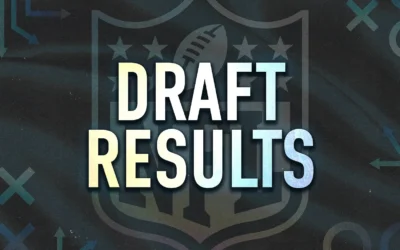In a dramatic turn of events, Russia has asserted that it has regained control over the Kursk region from Ukrainian armed forces, prompting an urgent response from the international community. This claim comes amidst heightened tensions on the battlefield and significant diplomatic interactions at the Vatican, where Ukrainian President Volodymyr Zelensky met with former U.S. President Donald Trump during the funeral of Pope Francis.
The Battlefield Developments in Kursk
The situation in Kursk has intensified, with Russian officials stating that all Ukrainian troops have evacuated the region, effectively re-establishing their military presence there. “The operation has successfully concluded, and we have regained our territorial control in Kursk, marking a critical victory for the Russian armed forces,” claimed a spokesperson from the Kremlin.
This assertion by Moscow raises questions about the actual status of the conflict in eastern Europe, as previous reports had suggested an ongoing struggle for dominance in the area. The Ukrainian government has denied these claims, insisting that its forces are still active and engaged in combat operations around Kursk.
The Ukrainian Response
In response to the Russian claims, the Ukrainian military released a statement expressing skepticism about the reliability of Russian intelligence. “We are evaluating the situation, but we can confirm that our troops are committed to defending our sovereignty. Claims of complete troop withdrawal are premature and unverified,” said a spokesperson for the Ukrainian Defense Ministry.
The Kursk region holds strategic significance, as it borders Ukraine and serves as a vital point for military logistics and troop movements. The ongoing struggle for control highlights the larger conflict that has engulfed the region since 2014.
Zelensky’s Diplomatic Outreach at the Vatican
Amidst these military developments, President Zelensky seized a powerful opportunity for diplomacy as he met with Trump at the Vatican during the memorial service for Pope Francis. This meeting, described by both leaders as “productive,” comes at a crucial moment in U.S.-Ukraine relations and the West’s response to Russia’s aggression.
Details about the discussions remain under wraps, but sources indicate that the two leaders focused on enhancing military support for Ukraine as well as reinforcing sanctions against Russia. The meeting underscores the enduring ties between Ukraine and the United States, particularly as tensions continue to escalate in eastern Europe.
A Meeting of Historical Significance
The backdrop of Pope Francis’s funeral—an event that drew dignitaries and heads of state from around the world—provided a unique setting for Zelensky and Trump to engage on pressing issues. It highlighted the interplay between military strategy and the moral dimensions of leadership during times of crisis.
“We stand with Ukraine in their fight for sovereignty and territorial integrity. My meeting with President Zelensky is a testament to America’s unwavering support,” stated Trump following their discussions.
Implications for International Relations
The convergence of significant military claims and diplomatic efforts spotlights the crucial geopolitical stakes involved in the Russo-Ukrainian conflict. As Western nations, including the U.S., deliberate over the adequacy of their support to Ukraine, the dynamics of military engagement and political alliance continue to evolve rapidly.
Analysts have noted that both Russia and Ukraine could significantly alter their strategies based on the international response to the ongoing events. The power plays seen in Kursk and diplomatic engagements in the Vatican exemplify how both nations are vying for influence and support on the global stage.
The World’s Reaction
The international community has swiftly reacted to Russia’s claims about Kursk. NATO officials have voiced their concerns, stating that they are monitoring the situation closely. “Any attempt by Russia to escalate its aggression will not go unanswered by NATO or its allies,” warned a senior official in a recent briefing.
Countries across Europe have called for urgency in addressing the conflict, with some advocating for deeper sanctions against Russia and more comprehensive military aid to Ukraine. Public sentiment amongst EU nations largely favors supporting Ukraine amidst concerns about potential territorial expansion by the Kremlin.
Looking Ahead
The conflict in the Kursk region is emblematic of the larger geopolitical standoff between Russia and Ukraine, which has significant implications for global security and diplomacy. As President Zelensky forges alliances and seeks continued support from the West, the fate of Kursk may well serve as a critical benchmark in this enduring struggle.
Both sides appear entrenched in their positions, raising the likelihood of prolonged conflict unless diplomatic solutions can be effectively pursued. Observers suggest that the next steps taken by military leaders and political executives alike could define not only the outcomes in Ukraine but also the future of international relations in this fractious era.
The world watches with bated breath as the narrative continues to unfold, presenting both opportunities for collaboration among allies and challenges posed by the relentless ambitions of authoritarian forces on Europe’s doorstep.







